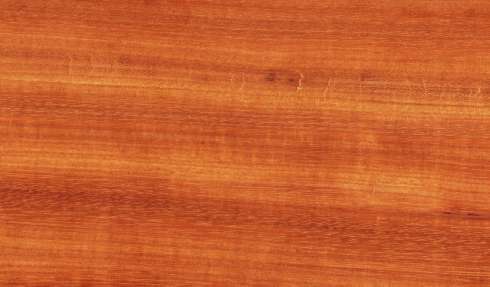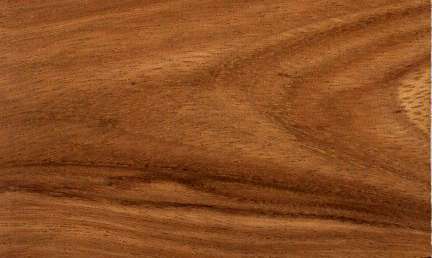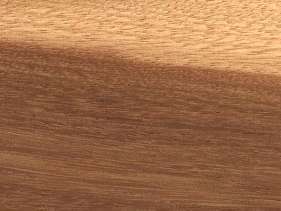  
Mtundu (Brachystegia spiciformis)
Family: Leguminosae
Common names: Igonde, Igondi, Kaputu, Messassa, Miombo, Mkuti, Mputu, Mrihi, Mriti, Msasa, Mtondo, Mtondoro, Mtundu, Mtundu mweupe, Mubugu, Muhugu, Muhuhu, Mumanga, Mundu, Mupanda, Mupuhu, Muputu, Musasa, Musewe, Mutsatsa, Mutundoje, Mutuya, Mwekundu, Myombo, N'tnudu, Ndagula, Puti, Speciformis, Umutundu
Distributed in: Angola, Kenya, Malawi, Mozambique, Tanzania, Zaire, Zambia, Zimbabwe (Africa)
Distribution overview: Savanna forests of East Africa, mostly Tanzania, Zambia, and Mozambique; reaching from the coastal belt to the highlands.
Common uses: Agricultural implements, Beams, Bedroom suites, Boxes and crates, Building construction, Cabin construction, Cabinetmaking, Charcoal, Concrete formwork, Construction, Crossties, Decks, Domestic flooring, Drawer sides, Excelsior, Factory construction, Flooring, Food containers, Form work, Foundation posts, Framing, Fuelwood, Furniture , Furniture, Heavy construction, Joinery, Joists, Kitchen cabinets, Light construction, Living-room suites, Medicinal use, Millwork, Mine timbers, Office furniture, Parquet flooring, Plywood, Porch columns, Pulp/Paper products, Radio - stereo - TV cabinets, Railroad ties, Rough construction, Sub-flooring, Tables, Tannin, Tool handles, Turnery, Vehicle parts, Veneer, Veneer: decorative, Wheel spokes, Wheels
Environment profile: Status has not been officially assessed
Tree size: Tree height is 30-40 m
Colors: the heart isReddish brown, Yellowand the sapwoodWhitish, Yellow.The grain isIrregular and interlocked, producing a ribbon figure, the textureMedium coarse to coarseand the lusterMedium
Natural durability: Very durable, Very little natural resistance
Odor: No specific odor
Kiln Schedules: UK=C US=T3C2/T3C1 Fr=3
Kiln Drying Rate: Slow (18-28 days for boards < 32 mm, to 52-84 days for boards >= 63 mm)
Drying Defects: Slight twist/warp, Tendency to split around knots
Ease of Drying: Shrinkage Green to12% MC
Tree Identification: Bole/stem form is not buttressed
Blunting Effect: Blunting effect on sawing is moderate
Boring: Easy
Cutting Resistance: Material with interlocked grain can be difficult.
Gluing: Fairly Easy to Very Easy
Mortising: Finishes well
Moulding: Poor moulding
Movement in Service: Poor moulding
Nailing: Possible if prebored, Pre-Boring Recommended
Planing: Requires reduced cutting angle
Resistance to Impregnation: Sapwood is permeable
Resistance to Splitting: Poor
Response to hand tools: Fairly Difficult to Difficult to Work
Routing recessing: Routing is difficult
Sanding: Good sanding qualities
Steam bending: Very poor
Turning: Good results
Polishing: Very Good to Excellent; Staining: Finish is generally satisfactory
; Varnishing: Good;
- Numerical data Metric
- Numerical data English
- Strength properties
- References
 |
 |
 |
 |
| Item |
Green |
Dry |
Metric |
| Specific Gravity |
0,62 |
0,7 |
|
| Density |
|
801 |
kg/m3 |
| Bending Strength |
643 |
1121 |
kg/cm2 |
| Crushing Strength |
466 |
680 |
kg/cm2 |
| Hardness |
|
798 |
kg |
| Impact Strength |
|
106 |
cm |
| Shearing Strength |
|
158 |
kg/cm2 |
| Stiffness |
114 |
139 |
1000 kg/cm2 |
| Tangential Shrinkage |
6 |
|
% |
| Radial Shrinkage |
4 |
|
% |
| Weight |
801 |
785 |
kg/m3 |
| Maximum Load |
|
1,4 |
cm-kg/cm3 |
| Toughness |
|
417 |
cm-kg |
| Static Bending |
|
540 |
kg/cm2 |
|
 |  |  |  | | Item | Green | Dry | English | | Bending Strength | 9158 | 15946 | psi | | Density | | 50 | lbs/ft3 | | Hardness | | 1761 | lbs | | Impact Strength | | 42 | inches | | Maximum Crushing Strength | 6628 | 9679 | psi | | Shearing Strength | | 2250 | psi | | Static Bending | | 7683 | psi | | Stiffness | 1624 | 1981 | 1000 psi | | Toughness | | 362 | inch-lbs | | Work to Maximum Load | | 20 | inch-lbs/in3 | | Specific Gravity | 0.62 | 0.7 | | | Weight | 50 | 49 | lbs/ft3 | | Radial Shrinkage | 4 | | % | | Tangential Shrinkage | 6 | | % | | Volumetric Shrinkage | 10 | | % | |
Max. crushing strength = high 0
Bending strength (MOR) = medium 0
Shearing strength (parallel to grain) = medium 0
Hardness (side grain) = medium 0
Density (dry weight) = 46-52 lbs/cu. ft.
Modulus of Elasticity (stiffness) = medium
Toughness-Hammer drop (impact strength) = medium
Modulus of Elasticity (stiffness) = low
Shrinkage, Tangential = small
Shrinkage, Radial = moderate
Shrinkage, Tangential = moderate
Shrinkage, Radial = small
Shearing strength (parallel to grain) = low
Modulus of Elasticity (stiffness) = high
Very heavy
Max. crushing strength = medium
Hardness = very high
Dnesity (dry wieght) = 53-60 lbs/cu. ft.
Density = high
Compression strength (parallel to grain) = high
Bending strength (MOR) = very high
Bending strength (MOR) = low
Bending strength (MOR) = high
Ackerman, D.P., Krogh, P.M.D.,1961,Brachystegia Species for Railway Sleepers,Forestry in South Africa N0.1 July, pp47-49Alan Schwartz.Rio Rivuma, Boston, MA.Personal Communication, 1993.Armstrong, F.H.,1960,The Strength Properties of Timber,Forest Products Research Laboratory, London Bulletin,No.45Banks, C.H. and J.P. Schoeman. 1963. Railway Sleeper and Crossing Timbers. Bulletin No. 41, Republic of South Africa. The Government Printer, Pretoria, South Africa.Banks, C.H., Schoeman, J.P., Otto, K.P.,1977,The Mechanical Properties of Timbers with particular reference to South,Africa,South African Forestry Research Institute Bulletin,(Ed.,Schoeman, J.P. 1973 & Otto K.P. 1976,No.48Bois, P.J.,1966,The Strength Properties of Tanzania Timbers,Tanzania Forest Div. Util. Sec. Moshi Tech. Note, No.35Bolza, E., Keating, W.G.,1972,African Timbers - the Properties, Uses and Characteristics of 700 Species,C.S.I.R.O. Div. of Building ResearchBryce, J. and Kitambi, G.,1960,The Air-drying Properties of some Tanganyika Timbers Technical Note No 23,Tanganyika Forest Department Utilisation Division Technical NoteBryce, J.M.,1967,Commercial Timbers of Tanzania,Tanzanian Forestry Division Util. Sec. MoshiChudnoff, M.,1984,Tropical Timbers of the World,U.S.A. Department of Agriculture, Forest Service, Forest Products,Laboratory, Madison.Fanshawe, D.B.,1962,Fifty Common Trees of Northern Rhodesia,Natural Resources Board and Forestry Department, NdolaFlamwell, C.T.,1958,The Working Properties of Brachystegia spiciformis,Tanzania Forest Division Util. Sec. Moshi Technical Note,No.10Fortin, Y., Poliquin, J.,1976,Natural Durability and Preservation of 100 Tropical African Woods,International Development Research Centre, CanadaFrance - C.T.F.T./C.T.B.,1982,Guide pour le Choix des Essences Deroulables-pour la fabrication du,contreplaque,C.T.F.T./C.T.B. FranceGoldsmith, B., Carter, D.T.,1981,The Indigenous Timbers of Zimbabwe,Forestry Commission, Zimbabwe Research Bulletin No.9Hughes, J.F.,1957,A Summary of Information Available on the Utilisation of Brachystegia,spiciformis,Tanzania Forest Dept. Util. Sec. Moshi - Utilisation Series,No.1Imperial Institute,1923,Results of the Examination of Nigerian Timbers,Bulletin of the Imperial Institute,21(3, pp444-61Lavers, G. M.1966.The Strength Properties of Timbers.Forest Products Research Bulletin, No. 50. Ministry of Technology, Her Majesty's Stationery Office, London.Lavers, G.M.,1983,The Strength Properties of Timber (3rd ed. revised Moore G.L.,Forest Products Research Laboratory, Princes Risborough, Building Research,Establishment Report (formerly Bulletin No.50)Murira, K.,1984,Natural Durability Tests of Tanzanian Timbers 1955 - 1982,Tanzania Forestry Research Institute, Timber Utilisation Research Centre,,Moshi.Pardy, A.A.,1951,Notes on Indigenous Trees and Shrubs of S. Rhodesia - Brachystegia,spiciformis,Ministry of Agriculture and Lands S. Rhodesia Bulletin,No.1604Patterson, D.N.,1963,The strength of Kenya timbers, their derivation and application,Kenya Forestry Department Research Bulletin,No.23Sallenave, P.,1971,Proprietes Physiques et Mecaniques des Bois Tropicaux (Deuxieme,Supplement,C.T.F.T.Scott, M.H.,1950,Notes on the more Important African Timbers Imported into the Union with,Special Ref. to Port. E.A. Species,Journal of the South African Forestry Association,No.19,pp18-62,[South,African Forestry Journal]Simpson, W.T. and J.A. Sagoe. 1991. Relative Drying Times of 650 Tropical Woods : Estimation by Green Moisture Content, Specific Gravity, and Green Weight Density.United States Department of Agriculture (USDA, Forest Service, General Technical Report FPL-GTR-71, Forest Products Laboratory, Madison, Wisconsin.Storrs, A.E.G.,1979,Know your Trees - Some of the Common Trees found in Zambia,Zambia Forestry Department, NdolaTakahashi, A.,1978,Compilation of Data on the Mechanical Properties of Foreign Woods (Part,III) Africa,Shimane University, Japan, Research Report on Foreign Wood No. 7Tanzania - Timber Marketing Co. Ltd.,1978,Timber from TanzaniaTanzania Forest Department,1960,The Natural Durability of Local Timbers,Tanzanian Forest Dept. Tech. Note,No.14Tanzania Forest Department,1961,Timbers of Tanganyika - Brachystegia spiciformis,Tanzania Forest Dept. Util. Sec. Moshi - Timbers of TanganyikaTanzania Forest Department,1962,Run Speeds for Circular Saws,Tanzania Forest Dept. Util. Sec. Moshi - Sawmill Series, No.8Tanzania Forest Department,1966,Flooring Timbers,Tanzania Forest Div. Util. Sec. Moshi - Timbers of TanganyikaTanzania Forest Division,1966,Kiln Drying Schedules for Tanzania Timbers Technical Note no.38,Tanzania Forest Div. Util. Sec. MoshiWCMC. 1992. Conservation Status Listing - Trees and Timbers of the World. World Conservation Monitoring Center-Plants Programme, Cambridge, CB3 ODL, United Kingdom.Wimbush, S.H.,1950,Catalogue of Kenya Timbers,Govt. Printer Nairobi Kenya
|










